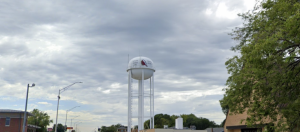 Iowa : Safety by City
Iowa : Safety by City
- Ames
- Ankeny
- Arnolds Park
- Bentonsport
- Bettendorf
- Cedar Falls
- Cedar Rapids
- Clarinda
- Clear Lake
- Clive
- Coralville
- Council Bluffs
- Davenport
- Decorah
- Des Moines
- Dubuque
- Estherville
- Fort Dodge
- Fort Madison
- Indianola
- Iowa City
- Keokuk
- Marshalltown
- Mason City
- Muscatine
- North Liberty
- Okoboji
- Ottumwa
- Pella
- Pleasant Hill
- Polk City
- Shenandoah
- Sioux City
- Spirit Lake
- Storm Lake
- The Amana Colonies
- Urbandale
- West Des Moines
Iowa is one of the safest states in the nation for travel.
It is largely rural, and even the big cities are not all that big.
There are miles of rolling hills covered with corn and wheat, and there are a lot of interesting sites along the way.
The Mississippi River flows on the eastern border, and that makes for interesting travel too.
Even though it is a largely flat farming state, there are a lot of beautiful state parks and wilderness to explore.
Iowa is the heartland of America, so you get a real taste of what the countryside is like here.
There is plenty of history of the settlement of America as well.
It may not have the lights and excitement of some places, but it has all the charm you could possibly want.
Iowa is a great place for a peaceful and relaxing vacation.
Warnings & Dangers in Iowa

OVERALL RISK: LOW
Maybe it is the rural nature of the state, but there is very little danger anywhere in the state. Des Moines is the biggest city, and it has its share of crime but is below the national average. With basic safety precautions you would take anywhere, there is very little risk in Iowa.

TRANSPORT & TAXIS RISK: LOW
The problem with public transportation in Iowa is the lack of it, more than any danger involved. Bigger cities have buses that are user-friendly. There are a few trains, and some bus lines have routes between cities. Like much of rural America, there is not a lot of public transportation available.

PICKPOCKETS RISK: LOW
Pickpockets are rare in Iowa. Most property crime is based on opportunity. A car or motel room left unlocked might provide a petty criminal with an opportunity, and they might steal what they can.

NATURAL DISASTERS RISK: MEDIUM
There are not a lot of natural disasters here, but the weather can provide some treacherous situations. Tornadoes are common during the spring storm season. Flooding can happen at times along rivers, and there is a lot of snow in winter. Natural disasters can happen, but with planning, they can be mostly avoided.

MUGGING RISK: LOW
In downtown Des Moines there is a little more crime than in other places. Muggings are relatively rare. They happen in the larger cities, and normally only happen when people are in an unsafe area alone.

TERRORISM RISK: LOW
Terrorism is virtually unheard of in Iowa. It is too rural, and terrorists are not in the habit of attacking rural areas where there are not a lot of people.

SCAMS RISK: LOW
Iowa is not a well-known tourist area, and that cuts down on scams to some degree. The biggest risk would be auto repair shops that might try to make unneeded repairs on your car. There might be some shop owners who would try to take advantage of international travelers not familiar with the currency, but those are too rare.

WOMEN TRAVELERS RISK: LOW
Women are known to travel alone in Iowa without any issues. Only in larger cities is there any danger, and then only if you are in a bad part of town alone. In most areas frequented by tourists, a woman traveling, even alone, would not get much attention.

TAP WATER RISK: LOW
Even small towns have sound water systems, so the tap water is fine. The water is not hard, so it tastes good. In Iowa, you are just as good at drinking tap water as you are buying bottled water.
Safest Places to Visit in Iowa
The safest places would be rural areas, state parks, or areas where there are not a lot of people.
Places like Dubuque and Davenport, along the Mississippi River, are great little tourist towns that are very safe for travelers.
Iowa has the second-lowest crime rate in the Midwest, with 303 violent crimes per 100,000 people.
Two famous places to visit are the Bridges of Madison County and the site of the movie Field of Dreams.
Both are in remote areas that are very safe.
Dubuque is a nice river town that has a lot of history and museums.
Their museum of the Mississippi River is one of the best river museums in the nation.
Scandinavians settled the area in the 1800s and there is a lot of history to explore in this area of the state.
The 325-mile great river roadway travels along the Mississippi River and is very safe.
It’s a great adventure in itself, with lots of small towns along the way.
The Amana Colonies are a group of seven villages that have preserved their German heritage in a pristine manner.
Places to Avoid in Iowa
Iowa has a low crime rate, but it has inched upward in recent years.
The crime rate is below the national average but has increased by more than the national average over the last few years.
Council Bluffs is a small city of 62,000 but has a crime rate double the national average.
Des Moines is the largest city at 202,000 and has the second-highest crime rate in the state.
There are very few areas that are absolutely unsafe.
Avoid being out at night alone in cities, and keep an eye on your surroundings during the day.
Being alert will go a long way in keeping you safe.
Most crime is done when people are not paying attention to their surroundings.
Criminals are looking for easy targets, and it takes just a little planning and paying attention to avoid providing them with an easy target.
Safety Tips for Traveling to Iowa
- Keep your car and motel room locked. Most property crime happens because the opportunity is there. Petty criminals do not often break locks and look for property that is not secured. Keeping your property locked up will keep a lot of crime from happening.
- Don’t go out at night alone. This is especially true for women, but it is generally not safe to be out at night alone in larger cities. Most areas are safe, but when criminals are around, they look for easy victims.
- Don’t be too obvious. Don’t look like the typical tourist. Try to look like an average person out on the street. When there are criminals around, they target people who may not know the area, like tourists.
- Keep family informed. Especially if you are going to a wilderness area, or out in the rural areas, let someone know where you are and when you expect to be back. If you do get in trouble, someone will know to come looking for you.
- Pay attention to the weather forecasts. Snow can come suddenly in the winter. Tornadoes can develop quickly on stormy days in the spring. Keeping an eye on the weather report can keep you out of harm’s way.
- Stay warm in winter. Especially in the winter, dress warmly and carry extra blankets if you are driving. Keep a first aid kit, and a weather safety kit, in your car at all times. It is easy to get stuck in the snow, and in some rural areas, phone signals are weak. If there is a major snowstorm, you could find yourself stranded for a long time.
- Drive safely in winter. Keep your car in good shape, and even with a rental car, it is a good idea to check fluid levels, belts and hoses, and other things that could go wrong. Snow can be treacherous if you are not used to those driving conditions.
- Keep in touch. Keep important emergency numbers on your phones, such as fire, police, and the state dept. of transportation. Always make sure someone knows where you are and when you expect to be back. This can give rescuers a head start if they do get in trouble of some kind.
- Be aware of your surroundings. Watch for suspicious behavior, and keep an eye open when you are in unfamiliar territory. Trust your instincts and avoid any situation that does not feel right. It is better to be wrong than to be right, but not heed your inner warning.
- Avoid distractions. Don’t let your electronic devices be a dangerous distraction. Avoid using them while driving. Also, when in public, keep the volume low on your earbuds or use only one earpiece. Stay alert no matter where you are.
So... How Safe Is Iowa Really?
Iowa is very safe, but like anywhere, there is some crime.
While the state’s crime rate remains below the national average, it has crept upward over the last couple of years.
There were 338 violent crimes per 100,000 people in 2020, which was a five percent increase over the previous year.
Iowa had a spike in overall crime, however, with a 13 percent increase in 2020, making it the 34th compared to all other states.
Council Bluffs is a medium-sized town just across the river from Omaha, Neb., and it has a crime rate that is 144 percent above the national average.
Des Moines, the largest city, has the second-highest crime rate.
While crime may have ticked up a little, the state itself remains safe for travelers for the most part.
A lot of crime happens in areas that have bad reputations, and most tourists do not visit anyway.
Areas frequented by tourists are very safe, and very little crime is reported in these areas.
Much of the state is rural and dotted with small towns, where there is very little crime.
In rural areas, the greater danger would be getting lost on some obscure road.
How Does Iowa Compare?
| State | Safety Index |
|---|---|
| Iowa | 82 |
| Kansas | 81 |
| Idaho | 85 |
| Illinois | 77 |
| Indiana | 61 |
| Alaska | 65 |
| Colorado | 82 |
| Florida | 70 |
| Maryland | 65 |
Useful Information

Visas
Foreign travelers need a visa or passport to enter the United States, but once in Iowa, you will not be required to show these documents. Keep them in a safe place. Since it is in the middle of the country, there are not a lot of ports of entry in the state, so you will probably only need your Visa when you first arrive in the country.

Currency
The standard currency is the U.S. Dollar in Iowa. You may make an exchange at the airport when you enter the country, or at banks in any Iowa city. Most businesses will not accept cash other than the U.S. Dollar. They will, however, accept credit cards from almost any country. The currency exchange will be made a part of the transaction.

Weather
In summer, the weather is very pleasant in Iowa. It is warm but not terribly hot most of the time. Winters can be harsh, with a lot of low temperatures and snow. Dress warmly in winter. Spring and Fall are very nice seasons, with very temperate weather and little rain. It is a state with four different seasons. Winter is the only one that should cause any discomfort.

Airports
Des Moines is the only city with an international airport and it is just a few miles south of town. Taxis are readily available there to take you to hotels in the Des Moines area. Smaller and mid-sized cities may also have regional airports and some of them have taxis to hotels.

Travel Insurance
Even in a relatively safe state like Iowa, things can go wrong. This is why it is good to have the safety net of travel insurance. Iowa State University has a program to offer international travelers health insurance while they are visiting the state. Travel insurance is especially good for international travelers, but domestic travelers can also benefit from the peace of mind you have when you have some insurance.
Iowa Weather Averages (Temperatures)
Average High/Low Temperature
| Temperature / Month | Jan | Feb | Mar | Apr | May | Jun | Jul | Aug | Sep | Oct | Nov | Dec |
|---|---|---|---|---|---|---|---|---|---|---|---|---|
| High °C | -1 | 2 | 9 | 17 | 23 | 28 | 30 | 29 | 25 | 18 | 9 | 1 |
| Low °C | -11 | -8 | -1 | 5 | 11 | 17 | 19 | 18 | 13 | 6 | -1 | -8 |
| High °F | 30 | 36 | 48 | 63 | 73 | 82 | 86 | 84 | 77 | 64 | 48 | 34 |
| Low °F | 12 | 18 | 30 | 41 | 52 | 63 | 66 | 64 | 55 | 43 | 30 | 18 |












I feel as a new person in this state. That yes the bus system is not good. Also its not friendly here in Iowa. In fact I plan to move because of the unfriendly people. It’s a beautiful state that is unfriendly. If your new. People avoid you. And do not want to help you as a new person.
You are absolutely right on it being unfriendly.
I moved to Iowa 8 years ago, I know no one.
Most people are low income drug addicts,
If you are able to meet a long time resident feel lucky as they do not reach out to anyone.
Iowa’s safety record speaks for itself. I recently traveled there solo, and the welcoming atmosphere put my mind at ease. Whether you’re into outdoor activities or cultural experiences, Iowa has it all without compromising on safety.